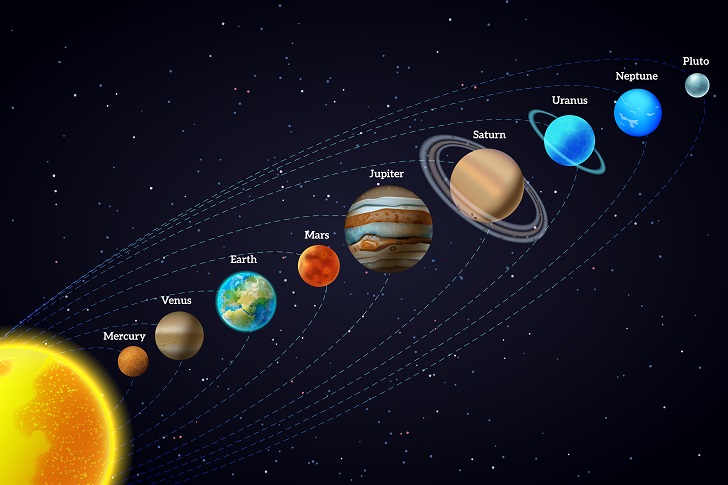There’s something magnetic about Sagittarius. This zodiac sign, active from November 22 to December 21, carries a spark that feels instantly recognizable—bold, curious, and constantly on the move. Sagittarius blends passion, intensity, and flexibility in a way that sets them apart. Their symbol, the archer, reflects a spirit that shoots toward distant horizons, eager to uncover meaning in places many people would skip. From remote rivers to historic sites filled with forgotten stories, Sagittarius pursues knowledge with an energy that rarely slows down. The Core Nature of Sagittarius Sagittarius is the final fire sign, and its traits burn with motion and curiosity. This sign is mutable, which explains its constant pull toward change and exploration. Freedom...
In his newest deep-space image, astrophotographer Greg Meyer turns the cosmos into a canvas. His subject — a nebula shaped like a furious baboon — has been dubbed the Rampaging Baboon Nebula. Streams of gas and dust weave through the frame, glowing in hues that give the scene a startling sense of movement. The photograph spotlights the complex beauty and creative chaos that define our galaxy’s stellar nurseries. A Nebula Like No Other The nebula lies about 500 light-years away in the constellation Corona Australis. Its shape suggests the face of a mandrill, with molecular dust sculpting the mouth and facial contours. The bright blue eyes are created by reflection nebulas that scatter starlight, adding a...
Mars has always been a planet of mystery, but fresh research suggests the Red Planet hides something far more unusual beneath its surface. Instead of a neatly layered interior, scientists have discovered that Mars’ mantle may be filled with giant chunks of rock left over from its violent early years. This finding reshapes the way experts view the inner structure of the planet and offers a rare glimpse into conditions dating back more than 4 billion years. Mars’ Messy Interior When most people think about the inside of a planet, the picture is often a series of tidy layers stacked one on top of another, like a clean geological cake. Mars, however, refuses to fit that...
Lightning might seem like a sudden burst from the sky, but the science behind it runs deep—and recent research has added an electrifying twist. Scientists have long known that thunderstorms build electrical charges until they discharge in brilliant flashes of lightning. What’s new is the evidence pointing to an unexpected trigger: cosmic rays. Researchers at Los Alamos National Laboratory have uncovered clues that suggest lightning may actually start with particles from outer space, opening a fresh angle on this natural phenomenon. A Shift in Understanding Thunderclouds have always been the stage for lightning. Traditional understanding says it begins when opposite charges build up in a storm—positive at the top, negative at the bottom. Once the difference...
The Vera C. Rubin Observatory has officially raised the bar for what “big data” means in astronomy. After releasing its first batch of cosmic images, the observatory isn't just capturing the night sky—it's creating one of the most extensive visual datasets humanity has ever seen. Powered by the world’s largest digital camera, the images are so detailed and expansive that processing them requires not just high-speed networks, but a whole digital ecosystem: seven international data brokers, three massive data centers, and a uniquely named management system called the Data Butler. The Scale of Rubin’s Cosmic Images What makes Rubin Observatory's contribution truly staggering is the sheer volume and precision of the data it collects. Once it...
In a groundbreaking observation, astronomers have captured an extraordinary moment in the cosmos—a high-speed, high-stakes confrontation between two galaxies over 11 billion light-years away. This isn’t just any merger. It’s a rare, aggressive event where one galaxy is striking the other with intense quasar radiation, dramatically changing its ability to form new stars. This unprecedented sighting is now offering a deeper look into how galaxies interact, evolve, and sometimes collide with devastating consequences. The "Cosmic Joust"—When Galaxies Collide Researchers used the combined power of ALMA and the Very Large Telescope (VLT) in Chile to observe two galaxies locked in what they describe as a “cosmic joust.” The term goes beyond metaphor—it reflects the actual movement. These...
Where Are We in the Universe? Here’s What You Need to Know About Earth as a Planet
Have you ever looked up at the night sky and wondered Where are we in the universe? This question brings forth feelings of wonder and perhaps a touch of existential awe. This comprehensive guide will explore our place in the cosmos and why Earth stands out in the vast expanse of space.
Our Solar System’s Structure
Situated in a sprawling universe that continues to expand, we find our home on a small, rocky planet known as Earth. Nestled within the Solar System, Earth shares this celestial neighborhood with seven other planets and three dwarf planets. These celestial bodies orbit the Sun, a relatively average-sized star, which forms the center of our Solar System.

Macrovector | Freepik | Nestled within the Solar System, Earth shares this celestial neighborhood with seven other planets and three dwarf planets.
The Milky Way: Our Galactic Home
Zooming out beyond the Solar System, Earth is part of the Milky Way Galaxy—a spiral-shaped galaxy with several arms, one of which cradles our Solar System. The Milky Way is just one of billions of galaxies in the universe, each containing millions to billions of stars and an even more significant number of planets. This makes our galactic address a pinpoint in the vast cosmic ocean and a dynamic part of a much larger celestial structure.
Where Are We in the Universe?
So, where are we in the universe? Earth occupies a small, almost negligible space in the grand scheme of things. Our planet is situated in the Orion Arm of the Milky Way, which is about 27,000 light years from the galactic center. This position gives us a unique vantage point to observe the rest of our galaxy and the universe beyond.

Robert Lea | MSN | Earth is situated in the Orion Arm of the Milky Way, which is about 27,000 light years from the galactic center.
What Makes Earth Unique in the Solar System?
Earth holds a special status among the various planets in our solar system due to its life-sustaining properties and dynamic geological characteristics.
The Only Known Planet with Life
Earth is the only known planet to harbor life, a distinction that remains unparalleled in our cosmos exploration. This uniqueness is mainly due to its environment, which supports water in its three states—solid, liquid, and gas—a critical element for life as we know it.
Distinct Seasons and Geophysical Features
Earth’s axial tilt of 23.5 degrees is responsible for the distinct seasons we experience, providing a varied environment that has influenced biodiversity and ecological complexity. Furthermore, Earth’s geology is marked by a thin crust divided into tectonic plates and a substantial iron core, characteristics that contribute to its magnetic field and tectonic activities, shaping the planet’s surface over millennia.
While other planets in our solar system also exhibit seasons due to their axial tilts, none combine these features with the presence of life and water, making Earth a unique study in contrast and balance within the solar system.
Understanding our place in the universe expands our knowledge and enriches our appreciation for the delicate balance that makes Earth uniquely capable of supporting life. As we continue to explore the cosmos, each discovery brings us closer to understanding where we are and how we are connected to the vast universe around us.














